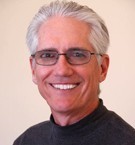This morning I was teaching my undergrad Bible class about the strong-group orientation of the early church. Personal decisions in the ancient world were generally made not by individuals but their social groups. Arranged marriages are perhaps the most familiar example.
So I asked my students, “How many of you would like your parents to choose your spouse for you?” Not a single hand was raised. And then I asked, “Why not?” The one answer I received was quite revealing (I paraphrase): “My parents would make the decision based on finances, and my potential spouse’s family background, rather than on how I feel about him.” I could not resist letting loose with a rather pointed response: “Yep. We sure wouldn’t want finances and family dynamics to interfere with true love, now, would we?” [wink, wink]
We all know that there is wisdom in shared decision-making. But we also rightly sense that something is wrong with deferring to our social group—natural family or church family—to make our decisions for us. Is there a happy medium?
One of Oceanside Christian Fellowship’s most meaningful ministries is something we call the Wisdom Council. A Wisdom Council is an ad hoc gathering for persons desiring input from others for major life decisions not addressed by the moral absolutes of Scripture.
It works like this. A church member initiates a request for a council. The couple that heads up the ministry then recruits a pastor and six or seven other persons with life experience related to the decision in question. Because council topics are extremely varied, there is a different mix of people around the table at every Wisdom Council. Here are just a few of the issues addressed in recent years:
- Is this a wise direction to grow and expand my business?
- Should I evict a problem renter? If so, how?
- How should I respond to these divorce papers?
- Should I change careers?
- I’ve been unfairly let go from my job. How should I proceed?
- What role should I play in the life of a homeless man?
What all these decisions have in common is the need for wise counsel from persons who are not directly involved in the situation at hand.
On one occasion a single mother was forced to make a tough decision about her son, a decision that would significantly shape the young man’s future for years to come. The boy’s teacher and school administrators had informed the woman that her son would benefit academically from being held back a year to repeat sixth grade.
There was a trade-off, however. The boy would suffer socially from such a move. School officials implied that the decision was a bit of a “toss up,” and they left our single mother with the daunting responsibility of deciding which way to go. Mom asked Pastor Michael to call a Wisdom Council.
The Council has standing members, including one of our pastors and a couple who oversee the ministry. Individuals who might bring particular insight to the situation under review fill out the rest of the group on an ad hoc basis. In the present case, we invited persons in the church with backgrounds in education and psychology, as well as another single parent or two.
No formal structure is employed. The group simply shares a couple hours together and openly discusses all the pros-and-cons associated with each option, so that an informed decision can be made with the kind of wisdom that can only come from community input. And then we pray together.
I do not recall the specific outcome of the situation outlined above. We can assume, however, that mother and son both went away assured that all options had been considered and that their church family would be there to support them whatever the decision and whatever the outcome. That, after all, is how the church as a family works.
 Biola University
Biola University


.jpg)
.jpg)